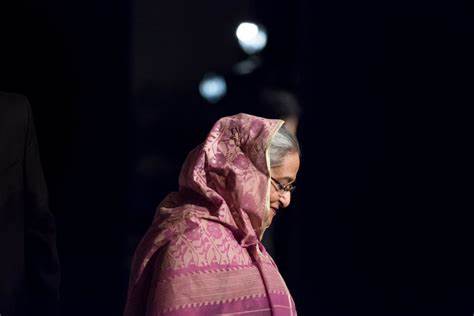The recent downfall of a pro-India government in Bangladesh presents a significant challenge for Prime Minister Narendra Modi. As India’s diplomatic ties in South Asia increasingly lean towards Beijing, this week’s political upheaval in Bangladesh highlights more than just regional power shifts—it underscores a broader economic and democratic concern.
Despite Bangladesh’s Prime Minister Sheikh Hasina’s impressive economic record, including over a decade of steady growth, her autocratic governance sparked deadly protests leading to her departure from the country. The turmoil reflects a broader issue affecting both Bangladesh and India: the struggle to address unemployment and democratic dissatisfaction.
Modi, who has just begun his third term, faces a similar challenge. While he has overseen a period of growth, both leaders have struggled to tackle the persistent problem of youth unemployment. The COVID-19 pandemic exacerbated these issues, but even now, disillusionment with jobless growth and democratic regression is growing. Bangladesh’s recent elections, marred by opposition boycotts, failed to offer an outlet for public frustration.
For India, this situation serves as a cautionary tale. Modi’s recent re-election has come with a diminished parliamentary majority, allowing for some renewed democratic vigor. However, concerns persist about government agencies allegedly targeting political opponents, diminishing trust in the Election Commission, and ongoing violence against minorities. The judiciary’s failure to curb demolitions of private property without due process adds to the growing list of grievances.
Economically, both India and Bangladesh are grappling with high youth unemployment rates. In Bangladesh, 30% of young people aged 15-24 are neither employed nor in education, while in India, the figure is 23.5%. Despite significant economic progress, both nations remain trapped in the middle-income bracket, far from achieving high-income status.
Unlike China’s single-party system, which is not an option for either country, India and Bangladesh can learn from South Korea’s success. South Korea’s transition from authoritarian rule to democracy was accompanied by substantial investments in infrastructure and incentives for private research and development. This approach facilitated a remarkable rise in economic sophistication and global competitiveness.
Bangladesh’s recent political instability has stalled its progress, emphasizing the need for both political stability and strategic economic planning. For India, this upheaval should signal the urgency to reform and address the structural issues impeding economic growth and job creation. Modi must reconsider his strategies to ensure that economic gains translate into tangible benefits for the youth and maintain political stability.

